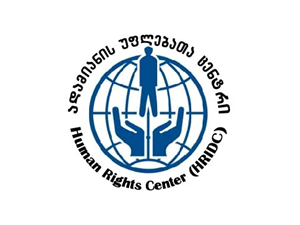Press release
Human Rights Center addressed the Parliament with a legislative proposal to adopt a law on amnesty in order to release those prisoners who were convicted during 2006-2012 under the article 262 of the Criminal Code of Georgia.
The legislative proposal states that in terms of the unconditional agglomeration of sentences, especially for drug-related crimes, inadequately long sentences have been a systematic problem of Georgia for years.
While monitoring the penitentiary facility for women, Human Rights Center discovered a discriminatory approach of justice. In particular, women prisoners who were charged under articles 260 and 262 of CC and sentenced to 25, 30 and more years of imprisonment by the court, have been serving their sentences for 8, 10 and more years. Since 2013, persons have been sentenced only to 2-3 years of imprisonment under the same articles. Accordingly, the convicts who were judged in 2006-2012 are inherently in an unequal situation in comparison with the new prisoners.
Those women prisoners, to whom the article 260 of CC was dropped by the amnesty of December 28, 2012, have been serving their sentences for many years, because the article 262 is still in force. By the 2012 act of amnesty, only 1/3 reduction of the sentence applied to the article 262 of CC for women prisoners.
Also, according to the legislative proposal of Human Rights Center, if the cases of the convicts in 2006-2012 included an aim of selling narcotics, they should not be subject to release under the act of amnesty. By the legislative proposal, sentences of persons, who were convicted for second or third time under the article 260-262 in 2006-2012, shall be reduced only with ¼.
Dissatisfaction of women prisoners is also caused by the fact that the President and the Pardon Commission refuse to pardon the prisoners who had served a half or even two thirds of their sentences based on article 262 of CC, before the Parliamentary Elections.
Human Rights Center thinks that by announcing the amnesty on the article 262 of CC, the Parliament will promote the process of rebuilding justice and eliminate the discriminatory approach of justice.
Human Rights Center
News
December 13, 2023
Ethnic minorities outside the peace dialogue
November 6, 2023
‘Peace’ agenda of political parties
Popular
Articles
February 13, 2024




